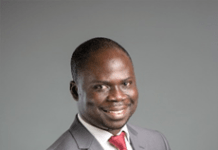In June 2022, President Lazarus Chakwera faced an impossible dilemma. His chief anti-corruption officer, Martha Chizuma – a respected professional – had just informed him of widespread corruption in his government.
In a report that named many powerful names, the Anti-Corruption Bureau (ACB) implicated the Inspector-General of Police and several other high-ranking government leaders, including the country’s Vice-President Dr. Saulos Chilima.
Just a few months earlier President Chakwera had dissolved his cabinet when three of his ministers (Lands Minister Kezzie Msukwa, who was accused of benefitting from land deals involving a UK-based Malawian businessman, Labour Minister Ken Kandodo accused of diverting COVID-19 funds, and Energy Minister Newton Kambala accused of meddling in the awarding of fuel import deals) were implicated in a corruption report. Now he was in a position of having to take a stance against the same people who helped him win the Presidency.
In the 2020 presidential election, Dr. Chilima contested the race as Lazarus Chakwera’s running mate for the Malawi Congress Party in the Tonse alliance which brought up to nine opposition political parties together to topple the administration of former President Mutharika and vault Chakwera into the Presidency.
Without the collaboration and support of powerful leaders like Chilima whose party had placed third in the disputed 2019 Presidential elections with 20percent of the vote (with Mutharika placing first with 38percent and Chakwera in second place with 35percent), Lazarus Chakwera would never have defeated President Mutharika to assume the presidency.
Some of Chakwera’s advisors and experienced political operators were of the opinion that taking a public stance against the Vice-President would be biting the hand that fed him and may ensure that Chakwera will not win the next Presidential election.
What is a leader to do when doing her/his job requires her/him to make choices that may impair her/his ability to keep their job? It is not an easy choice to make and many African leaders struggle with this choice. Perhaps we can take advice from one of the greatest African leaders to have ever lived…Nelson Mandela.
While he was the President of South Africa he stated that “When I become more concerned about keeping my job than doing my job, I am no longer fit for my job.” This was a statement he made when faced with making a decision that was unpopular with the ANC but was needed to benefit the entire citizenry of South Africa.
It appears that President Chakwera took the advice of Nelson Mandela. He sacked the IG of Police and stripped the Vice-President of his powers because as an elected leader, the Vice-President cannot be sacked by the President.
In a bold move that has spurred political pundits to pontificate that President Chakwera has just forfeited any opportunity to win the next election, the President took a public stance against corruption for the benefit of ordinary Malawians at the expense of rich and powerful Malawians and potentially at the expense of his own job retention prospects.
Am I the only one wishing that President Chakwera’s courage would be emulated by other African Presidents and organizational leaders?
There are few decisions more difficult than the decision to discipline or disappoint someone who has been in the trenches with you; someone to whom you owe favors up to and including your job. These decisions are gut-wrenching; they can result in stomach ulcers, sleepless nights, and headaches as numerous phone calls and text messages from friends, family, colleagues, and knowledgeable observers bombard you with conflicting advice that leaves your head spinning.
Dear African leader, please remember that your leadership is a service that you provide for the betterment of ALL of your employees, not just the ones in the C-Suite. Your leadership is a duty you have to current and future employees of your organization (or citizens of your country) and not just to your family members and close friends.
When leaders refuse to make sacrifices for the good of their followers, the long-term future of their followers is placed in jeopardy. Interestingly, the most glaring recent examples of this behavior are coming from outside Africa. Donald Trump (former President of the USA), Boris Johnson (former Prime Minister of the UK) and Vladimir Putin (President of Russia) have all made choices in the past three years that illustrate an unwillingness to make personal sacrifices for the good of their nation.
The January 6 (2021) attempted coup d’etat in Washington DC was the most obvious example of Trump’s willingness to subvert the good of his country for the benefit of his Presidency; the USA was already showing signs of long-term weakness (spiraling debt levels, partisan divisions, mis-handling of COVID-19 crisis) before this coup made it obvious to the casual observer that the country was unwell.
Boris Johnson’s flouting of COVID-19 rules that his own government created was just the clearest illustration of an administration that engendered a lack of trust between its own party members and with its constituencies; this lack of trust was already manifesting itself in the UK’s struggle to carve out suitable agreements with the EU and other nations in the wake of a messy Brexit implementation and continues to plague the UK’s economy today.
Vladimir Putin’s invasion of Ukraine was the most un-ignorable violation of human rights that Putin engaged in to protect his personal assets, position, and ambitions; prior to this he had already engaged in the poisoning of his political opponents (Alexei Navalny in 2020 and Sergei Skripal in 2018), the invasion of smaller territories (Crimea in 2014). It is little surprise, then, that the human development index and standards of living of Americans, English and Russians are lower today and projected to be lower in the next decade than they were in the past two decades.
Dear African leader – whether you lead a private sector organization or a public sector organization or a non-profit organization – your organization’s future will be better secured when you are willing to make sacrifices. This is why self-discipline is an important quality for good leadership in Africa.
Where would South Africa be if Nelson Mandela had been unwilling to make sacrifices? Whether those sacrifices come in the form of eating last, speaking less, disciplining your closest allies, eschewing privileges or salary, or showing up first in the office in the morning, your leadership legacy and organization’s performance will be determined by the sacrifices you are willing to make when nobody else may be watching or in a position to force you to make them.
For the sake of your employees, grandchildren, constituents and citizens, I hope that you will accept the challenge of willingly making sacrifices – especially when those around you want to tempt you to indulge yourself. Africa needs you to be the best leader you can be!










